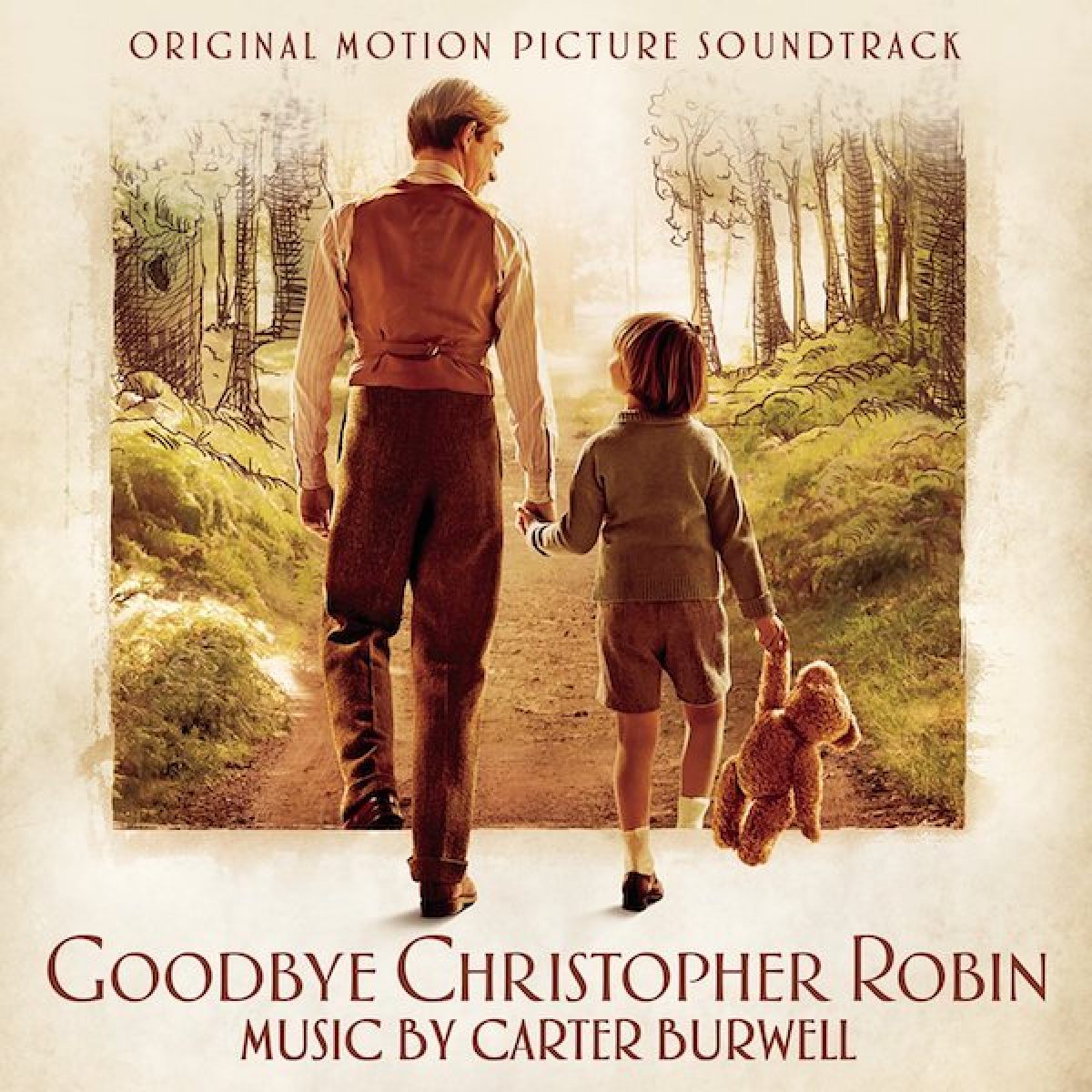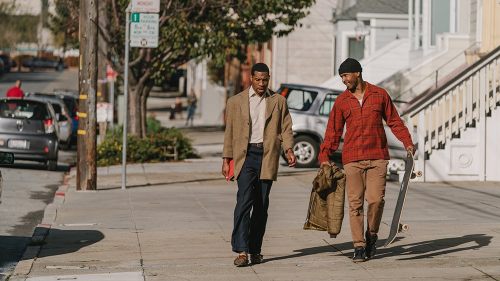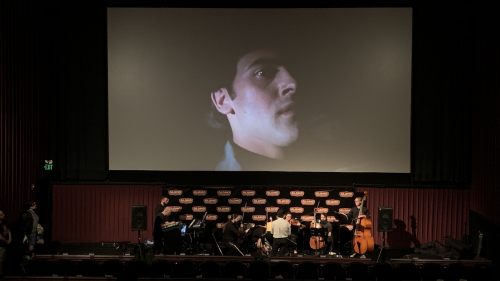ScoreKeeper’s Top Ten Film Scores of 2017
I regret I did not live up to my usual standard of film consumption in 2017. I summited a small mountain of movies and sailed a bountiful ocean of new film music; however, I feel I could’ve challenged myself more as a result of the struggle I experienced putting together this list.
I don’t think it’s been a particularly favorable year for film music. I find myself opining against the majority of scores communally heralded these past twelve months. That’s not to say I couldn’t muster ten scores I’m passionate enough about to crown as exemplary, but where I typically whittle down a lengthy list, this year I had to build one up.
I pride myself on spotlighting scores from around the globe that don’t always show up on everybody’s radar. Not so much this year. This collection of film music might be my most mainstream to date and lauds many of the same composers I’ve celebrated in the past.
I offer you this list as a doorway to discovery, not as a means to repudiate other choices. Don’t let anything stand in the way of the scores you love. The fact you’re listening is a sign we’re in the midst of a magnificent period of cinema where music-savvy audiences laud and magnify the craftsmanship of those devoted to this unique art form. If you composed a film score in 2017, I tip my hat to you and want you to know how much I appreciate your contribution. Keep up the great work into the new year.
Here are my top ten favorite scores of 2017…

10. Thelma by Ola Fløttum
We hear the term “less is more” thrown around a lot these days, especially as a preferred approach to modern film scoring. Creators are so afraid of “more is more” they simply end up getting “less is less.”
An exemplar of effective “less is more” scoring can be found in Ola Fløttum’s ethereal music for the Norwegian psychological thriller Thelma (2017). Like a flower blooming in slow-motion, Fløttum manages to wring every psychological drop of tension from each breath-like phrase. The undulating layers of strings, brass, and woodwinds flow atop one other as if governed by the laws of fluid dynamics.
It’s more difficult to compose a functionally productive score of this nature than it might seem to the casual listener. Repetition and elongated phrases often lead to stagnation which can prematurely kill narrative elements. No matter how persistent, Fløttum’s long exhalations are packed with cinematic material that complements Thelma’s supernatural abilities to perfection. The music gives the film a smart, stylized quality that avoids cliché and provides a cleansing experience that exemplifies the “less is more” approach.

9. Captain Underpants: The First Epic Movie by Theodore Shapiro
An outstanding score can be discovered anywhere. Sometimes it comes from the film you least expect. Captain Underpants: The First Epic Movie is one of those movies. I never would have expected that one of my favorite scores of 2017 would come from an animated film that plunges into bathroom humor with a narrative that is flush with satisfaction!
While the craft of orchestral composition has been suffering from artistic constipation for many years, Shapiro’s work on Captain Underpants confirms it still has viable permanence on the silver screen. The veteran composer drops a deuce in creating a score that contours the film to perfection while simultaneously cooking up a pleasurable listening experience apart from the movie. He achieves this by fusing a large orchestra with a hodgepodge of various noisemakers including kazoos, 8-bit electronics, whoopee cushions, and a host of traditional instruments that include guitars, drums, banjo, fiddle, and choir.
In an industry that strains to push out scores that sound similar, Shapiro’s kaleidoscopic concoctions are certainly a breath of fresh air! “Tra-La-Laaaaaaaaaaa, Un-der Pants!”

8. The Post by John Williams
John Williams is 85 years old. It would be fine if he were to stop being the leading innovator in his field thus allowing younger talent to pick up his mantle. Nobody would begrudge the seasoned veteran should the quality of his work wane. After all, he is semi-retired. And yet, the fact remains that Williams is still the leading innovator of his field and as long as he puts his Eagle Electronic Scorer to paper, he always will be.
What I love most about his score for The Post is that it’s a fresh experience rooted in nostalgia. While there are certainly some signature Williams-isms buried deep within the music, it represents yet another evolutionary branch on the trunk of this master craftsman. It sexily incorporates elements similar to what he composed during the 1970s (which is when this film takes place), yet, is as cutting-edge a score as was written in 2017. When you think of Williams’ work, you don’t often think of electronic music; however, The Post also showcases his talent for weaving synthesizers into his familiar orchestral tapestries.
While there’s no shortage of orchestral bravado coming from Williams’ oeuvre, his score for The Post exhibits an artistic side we don’t often hear from the old warhorse. This music is subtle, demure, minimalist, and yet still retains the weight and majesty of Williams’ more voluminous scores.
If you’re waiting for a sign of Williams’ artistic decline, you better settle in. You’re going to be waiting a long, long time.

7. Goodbye Christopher Robin by Carter Burwell
Carter Burwell penned three scores released in 2017 (the other two being Wonderstruck, and Three Billboards Outside Ebbing, Missouri) and they are all exceptional! I wouldn’t disagree with anybody placing any of these scores anywhere in their top ten, but there’s something about Goodbye Christopher Robin (2017) that fills my heart and stokes my passion for this craft.
What is particularly appealing about Goodbye Christopher Robin is Burwell’s ability to create powerfully emotional music that doesn’t offend those sensitive to being “manipulated” by music. There are genuine emotions running through each tender phrase. He doesn’t coat his music in thick layers of aural syrup but rather restrains his compositions so that each note is exposed and imperfect. It’s in this vulnerability that his emotion runs deepest. It’s ubiquitous, inoffensive, and outright gorgeous.
Burwell is a quiet force in the industry building his legacy upon originality, sincerity, and integrity. While many in the industry flock to fulfill a particular demand, Burwell forces filmmakers to demand him. He is composing some of the most refreshing, original, and inspiring film music of the last decade, and with three exceptional scores under his belt in a single year, that reputation is only strengthening.

6. Coco by Michael Giacchino
Coco isn’t simply a film about music but rather the reasons behind why we’re passionate about it and the origins of the deep abiding connection it creates within our souls. It’s a tale of seduction, fanaticism, love, and determination all of which fueled by masterfully composed music.
Folk music is terribly challenging to structure a film score around. It relies heavily on real instruments performed in unconventional ways by master musicians who don’t necessarily read music, yet are able to tap the inner recesses of their soul to extract a degree of passion unique to each artist. The folk music tradition goes much deeper than what is simply popular. It represents family, self, religion, heritage, traditions, and philosophy.
To be a film composer and try to “fake this” per se, simply won’t cut it. You can not artificially create these elements on a computer. Even mocking up a score for studio approval can prove impossibly difficult. It’s an all-or-nothing commitment that taxes even the most seasoned veterans. The authentic infusion of Giacchino’s Mexican-inspired underscore with folk songs, original tunes, and diegetic folk music makes this a masterpiece of cinematic music.
For nearly a century, the reigning compliment for film composers has always been the achievement of making audiences cry. The last time Giacchino made folks weep, he won his first Academy Award®. Will Coco garner him a second? Excuse me, I think I have something in my eye.

5. War for the Planet of the Apes by Michael Giacchino
I adore the evolution of the latest Planet of the Apes films. What could easily have become a series of summer drivel cash grabs has become one of the more emotionally impactful and meaningful trilogies of the new century. Much of the spiritual weight of these films comes from two key individuals: Andy Serkis, whose motion-captured portrayal of Caesar is astounding, and Michael Giacchino (scoring the later two films) who consistently elevated the emotions of the story slightly ahead of the action.
Modern cinema seems terrified of emotion and the utilization of music to amplify it. Michael Giacchino is almost single-handedly spearheading the resurgence of scores that will not shy away from pulling at your heartstrings. The Apes films have benefitted greatly from this classic approach and War for the Planet of the Apes is the epitome of leading an audience with their heart rather than their eyes.

4. Darkest Hour by Dario Marianelli
Like Winston Churchill himself, who stood up against a boisterous majority to inspire his nation toward a seemingly impossible victory, Dario Marianelli crafts an unconventional score which leads audiences through the roller-coaster ride of emotions in Great Britain at the dawn of World War II.
So much of this masterpiece of cinema is comprised of speeches, Parliamentary debate, and behind-the-scenes political discussions. To say it’s a “talky” film is an understatement. Its success relies heavily on Gary Oldman’s miraculous portrayal of the British Bulldog and Marianelli’s strong musical leadership. The term “manipulation” has regrettably devolved into a four-letter word in modern cinema; however, films like this prove how necessary it is for music to take commanding leadership over its audience and guide them through the perils of the narrative. I absolutely adore Marianelli’s bold piano-centric writing pummeling its way through thick layers of dialogue. It’s a classic approach to scoring we don’t see much of today.

3. Blade Runner 2049 by Hans Zimmer and Benjamin Wallfisch
I went into this film expecting to not like the score. When I heard Jóhann Jóhannson was pulled from scoring duties in favor of Hans Zimmer and Benjamin Wallfisch, there wasn’t an eye-roll emoji strong enough to accurately convey my reaction. Rumors were swirling that Jóhannson’s score, while magnificent on its own merits, simply wasn’t very Blade Runner. If this was indeed true, I can’t argue with the decision to replace it, but I have been critical of Zimmer in the past and wasn’t looking forward to hearing him get his mitts on this treasured classic.
For Blade Runner 2049 to work as a viable sequel, the all-important underscore had to embody the spirit of Vangelis’ iconic music. It couldn’t simply rehash the old score, but rather build a foundation upon its musical legacy. The score had to be fresh, alive, spirited and perfectly match the highly-stylized visuals of a familiar world, thirty years since we last visited.
I wouldn’t have suspected Zimmer and Wallfisch could’ve delivered this impossible order, yet there I was in the theater, shocked as Blade Runner perfection streamed into my ears. It sounded new, yet felt old. For many weeks 2049 was reigning as my favorite score of 2017. It’s a masterful achievement that elevates this amazing work of cinema and revises the textbook on how to build upon an iconic musical legacy.

2. Loving Vincent by Clint Mansell
There are few composers on the planet whose artistic work is as consistently powerful as Clint Mansell’s. Everything he immerses in his unique musical voice seemingly turns to platinum. When offered creative freedom, time, and an opportunity to follow a distinct vision, his work is unparalleled in the industry.
Loving Vincent represents a utopian marriage of music and film that is rarely seen in modern cinema. There are plenty of “arranged relationships,” but to witness a genuine wedlock of sight and sound is truly miraculous. It’s cinema at its most pure and profound state. While the hand-painted visuals of the animation certainly take center stage, Mansell’s music gives it a focused spotlight that is extraordinarily beautiful and heart-wrenching.

1. Star Wars: Episode VIII - The Last Jedi by John Williams
John Williams is the master. Few would deny this. He crafts music on a completely different plane of existence than the rest of us mere mortals. Williams’ work is so entirely exceptional that it takes away from the joy of writing about it. What words are left to describe what he has achieved? What can I say that you don’t already know? There are only thirty-nine synonyms for “awesome” in Roget’s thesaurus. I’m sure I used them all up years ago.
What Williams has been able to accomplish within the Star Wars cinematic universe may never again be duplicated. His work on the latest installment demonstrates his magisterial comprehension of compositional development, thematic sentence structure, counterpoint, orchestration, harmony, and firmly cements his omnipotence regarding cinema.
If I were commissioned to scribe a book on the subject, I could only hope to crack the surface of his brilliance. I don’t have that much real estate here so I’m just going to take a step back and make it easy on myself:
John Williams' score for Star Wars: Episode VIII - The Last Jedi is very, very good.



